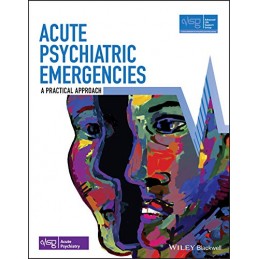- Reduced price

Order to parcel locker

easy pay


 Delivery policy
Delivery policy
Choose Paczkomat Inpost, Orlen Paczka, DHL, DPD or Poczta Polska. Click for more details
 Security policy
Security policy
Pay with a quick bank transfer, payment card or cash on delivery. Click for more details
 Return policy
Return policy
If you are a consumer, you can return the goods within 14 days. Click for more details
Acute Psychiatric Emergencies is designed for all medical and healthcare professionals working with patients in mental health crisis. This manual is a key component of the Acute Psychiatric Emergencies (APEx) course, which uses a structured approach developed by leading psychiatry and emergency medicine specialists with years of practical experience.
This valuable resource provides a practical approach for dealing with mental health emergencies, helping healthcare professionals from different specialties speak a common language and develop a shared understanding that expedites excellent care. The manual outlines the assessment and management of patients who have self-harmed, those that are apparently drunk, the patient behaving strangely, the patient with acute confusion, and those that are aggressive.
Acute Psychiatric Emergencies will be useful for practitioners of emergency medicine, psychiatry, emergency and mental health nursing as well as other mental health and crisis care professionals.
Data sheet
Working group vi
Contributors viii
Foreword ix
Preface and acknowledgements xi
Contact details and website information xii
How to use your textbook xiii
1 Structured approach to acute psychiatric emergencies 1
2 Primary unified assessment and immediate psychiatric management 5
3 Secondary physical and psychosocial assessment 13
4 The patient who has harmed themselves 19
5 The apparently drunk patient 37
6 The patient behaving strangely 51
7 The acutely confused patient 63
8 The aggressive patient 75
9 Legal aspects of emergency psychiatry 91
10 Human factors 97
11 The patient experience 107
Index 111
